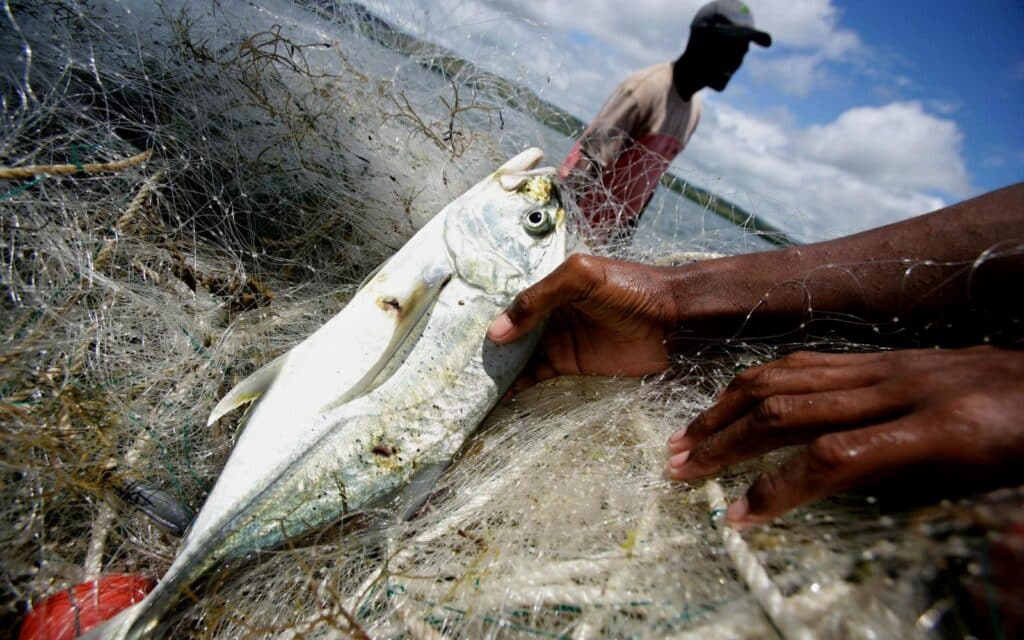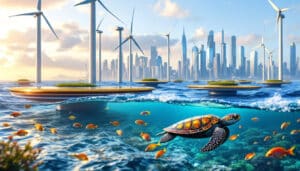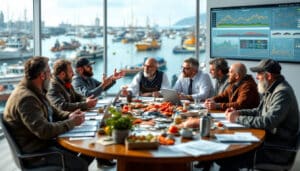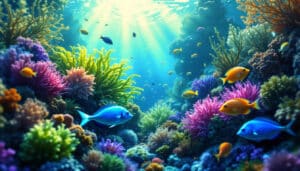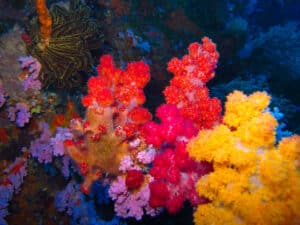Sustainable fishing represents much more than a simple method of harvesting marine resources; it embodies a commitment to the preservation of our marine environment. Every fisherman, whether amateur or professional, plays a crucial role in managing fish stocks and protecting aquatic ecosystems. By adopting responsible practices, fishermen can not only ensure the sustainability of their activity but also actively contribute to the conservation of marine biodiversity. In this quest for sustainability, techniques such as catch-and-release and the use of eco-friendly equipment appear as viable solutions. Moreover, by raising awareness and informing their peers, fishermen can promote a culture of respect and harmony with nature. In the face of increasing challenges related to overfishing and habitat degradation, every initiative counts. Understanding how fishermen can act for an ecological future is essential for protecting our seas and oceans. By positioning themselves as guardians of the sea, they shape a future where fishing and the environment coexist in harmony.
Sustainable fishing has become a crucial issue for the preservation of our marine ecosystems. Indeed, the way we practice fishing affects not only fish stocks, but also the entirety of marine biodiversity. As many fishermen turn to more environmentally friendly practices, it is essential to understand how each actor in this industry can contribute to a sustainable approach. Based on recent data and case studies, this article will address the methods and strategies that fishermen can adopt to protect our seas and oceans.
Table of Contents
ToggleThe consequences of overfishing on marine ecosystems
Overfishing represents one of the greatest challenges for marine conservation. According to the aquaculture” target=”_blank”>WWF, nearly 34% of fish stocks are assessed at levels below their biological limits, meaning they are under excessive pressure due to fishing. This situation leads to declining fish populations, the extinction of certain species, and an imbalance in ecosystems.
Statistics also reveal that the impact of fishing goes beyond the fish caught. Intensive fishing affects marine biodiversity by altering critical habitats and causing bycatch, where other marine species become trapped and often killed. This situation raises urgent questions about the responsibility of fishermen towards the environment.
To illustrate this phenomenon, let’s take the example of sturgeons, whose population has alarmingly declined in recent decades due to overfishing for their eggs, used in caviar production. Rehabilitation efforts have required strict measures and a collective awareness of the importance of developing sustainable fishing practices.
Strategies for sustainable fishing: practical recommendations
Fishermen can implement several strategies to reduce their impact on the environment. Among the most effective, adopting selective fishing techniques is an essential way to minimize bycatch. This involves using wider mesh nets or escape devices to allow non-target species to escape. Fishermen should also consider methods like rod fishing, which is less destructive than large-scale techniques.
Another approach is to participate in certification programs that ensure fishing is conducted sustainably. Organizations like the Marine Stewardship Council (MSC) offer sustainability labels that can help consumers identify environmentally friendly products. These certifications, while demanding, provide long-term benefits by enhancing the credibility of fishermen in the market.
A fundamental aspect of promoting sustainable fishing is educating and raising awareness among fishermen about sustainable resource management. Initiatives such as training workshops or meetings with experts can facilitate the exchange of best practices. Based on scientific data, these training programs help better understand the impact of fishing activities on marine ecosystems.
Moreover, fishermen can engage in local networks and organizations that work toward conservation. Cohesion and sharing experiences among fishermen are crucial to developing innovative solutions. A concrete example is that of fishermen in France who participate in marine habitat restoration projects by collaborating with NGOs, environmental associations, and local governments.
Towards responsible fishing: innovations and future perspectives
The fishing sector is also evolving with the emergence of new technologies that offer solutions for more responsible fishing. For example, satellite tracking systems allow fishermen to monitor fish stocks and optimize their fishing routes while minimizing their environmental impact. These technologies also facilitate data collection on fish populations and the implementation of conservation strategies.
Sustainable aquaculture practices represent another promising avenue. Aquaculture offers the possibility to meet the growing demand for fish without resorting to high seas fishing. However, it must be managed carefully to avoid issues such as water pollution and the escape of non-native species. Collaboration between fishermen and aquaculturists is essential to create synergies fostering true sustainability.
Finally, it is necessary to involve local communities in the management of marine resources. Fishermen play a crucial role as observers of the environment. Their traditional knowledge combined with scientific approaches can provide unique insights into marine conservation. By integrating them into the decision-making process, we strengthen their commitment to sustainable fishing.
In summary, sustainable fishing is an imperative that concerns all actors in the maritime sector. Through responsible practices, technological innovations, and better awareness, fishermen can play an active role in protecting our environment. They should see themselves as *guardians of the oceans*, participating in a collective project to ensure the survival of marine ecosystems for future generations.
It is essential to adopt concrete initiatives and establish collaborations that promote sustainable and responsible fishing, thereby ensuring the health of our planet and the well-being of coastal communities.
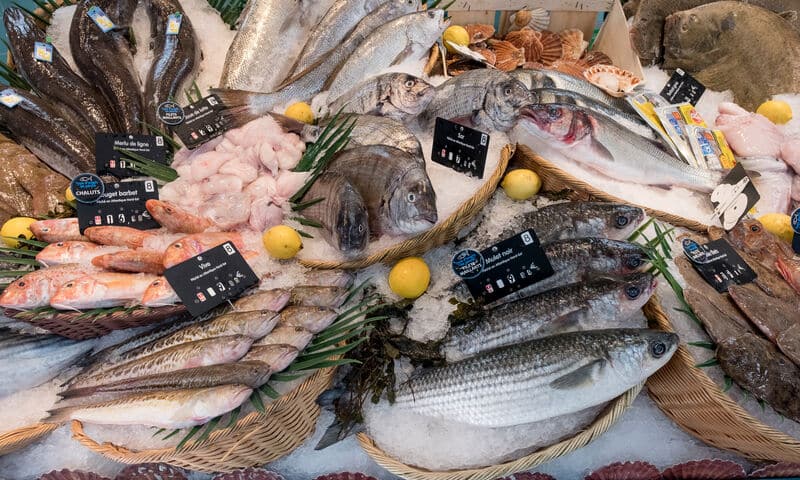
FAQ on Sustainable Fishing
What is sustainable fishing? Sustainable fishing refers to fishing practices that ensure the conservation of marine ecosystems and the health of fish stocks while allowing fishermen to make a living from their activity.
Why is sustainable fishing important? It is essential for protecting marine biodiversity, preventing overfishing, and ensuring that marine resources are available for future generations.
How can fishermen adopt sustainable fishing practices? Fishermen can contribute by using environmentally friendly catching techniques, minimizing bycatch, and ensuring that their methods do not harm marine habitats.
What role do catching techniques play in sustainable fishing? Using appropriate catching techniques helps reduce the impact on the ecosystem and promotes the rehabilitation of fish stocks.
What are the benefits of sustainable fishing for fishermen? Adopting sustainable practices can improve the quality of catches, open markets for certified sustainable fish, and enhance long-term profitability.
Can consumers help protect the environment? Yes, by choosing to buy sustainable fishing products, consumers exert pressure on the industry to adopt more environmentally friendly practices.

